“I’m not a cancer patient; I’m just a cyclist going through treatment.”
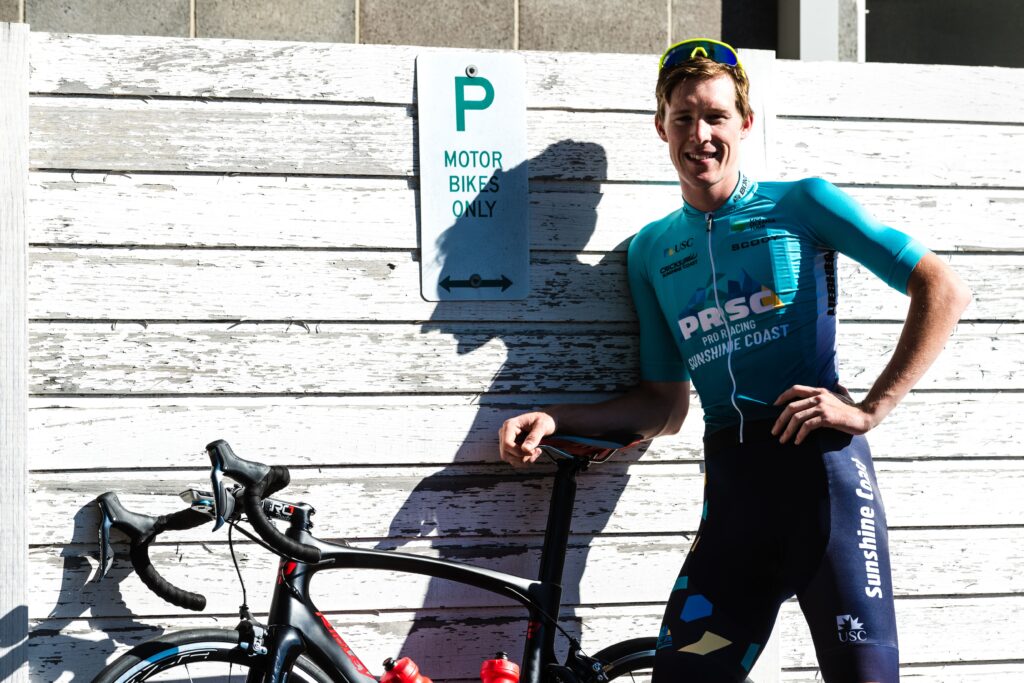
Zack Gilmore, one of the coaches at the RCA, marked 5 years of cancer remission in March (2023).
After competing in the National Championships at the age of 16, and picking up a silver medal in the Criterium Championships, concerns began to grow over a blocked ear that Zack had had for a while.
But like most athletes, Zack — and others — put it down to hay fever, the cold season, and everyday sickness. You know, the sickness a lot of cyclists and athletes encounter when they suspect overtraining.
Eventually though, the blocked ear was diagnosed as cancer — it pushed on a nerve in his face and began showing symptoms of a stroke.
Zack was diagnosed with Lymphoma, and his focus very quickly shifted from competing as a junior to intense chemotherapy treatment.
This was the very beginning of a few tough years for Zack, from one day riding in the footsteps of his Father and Grandfather — both professional riders in their day — to then using his bike as a release, a way to cope emotionally and maintain his identity as a cyclist.
But his outlook remained positive and never wandered. And as Zack put it, “I’m not a cancer patient; I’m just a cyclist going through treatment.”
Treatment
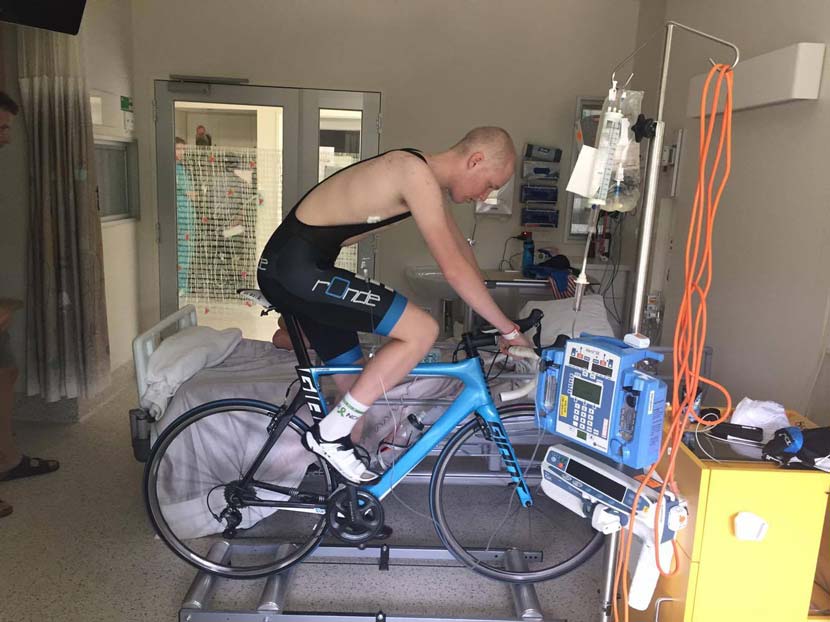
Zack was unable to receive chemotherapy the usual way by inserting a catheter into his forearms or hands. This was because of his extremely fast metabolism. Instead, he had it intravenously injected into his legs.
Like other cancer patients, Zack experienced rather severe side effects from chemotherapy, including mouth ulcers, vomiting, trouble eating, and other unpleasant symptoms.
Despite the side effects and obstacles thrown his way, Zack asked his Father to bring his rollers to the hospital — once it was safe to do so — and would ride whenever he could.
Usually, it would be ten minutes here or there, but it was enough to keep the legs spinning, the system ticking, and for Zack, a way to enjoy a sport he still loved — and would continue to dedicate himself to, during and after chemotherapy.
“Mom, Dad, I’m going to the Paralympics after this”
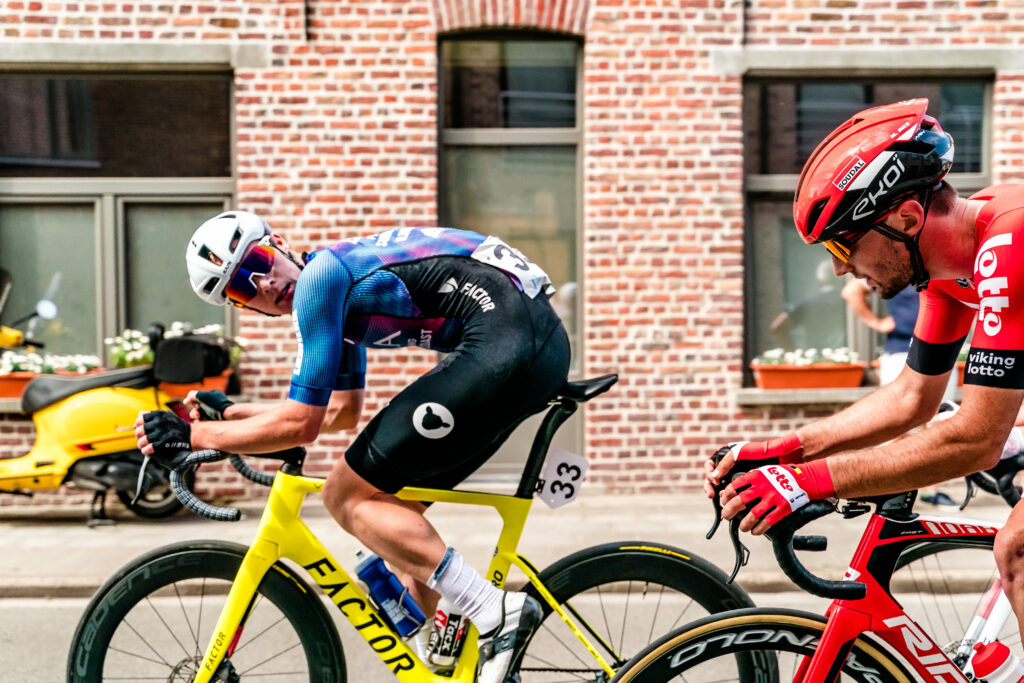
After a few sessions on the rollers and even more time in bed, somewhere during treatment, Zack began feeling this intense pain in his leg — the only way he could describe it was as if his leg was “broken.”
He couldn’t walk to the bathroom, his leg was heavily swollen, and Zack was in excruciating pain.
It turned out that after several months of injections, an infection occurred. One of the needles injected into his legs picked up a bug. After his blood pressure dropped, Zack was rushed to surgery and told he could lose his leg.
The doctors thought it could be Necrotizing fasciitis, also known as the “flesh-eating disease.”
Without hesitation, Zack turned to his parents and said, “Mom, Dad, I think I’m going to be in the Paralympics after this.” The painkillers may have helped, but this one line describes Zack perfectly — someone who always sees the best in the worst of situations, and no matter what obstacles are thrown his way, sees the lighthearted side of things.
Thankfully, they managed to cure the infection without removing the leg, and it was only a matter of time before he’d be back on those rollers.
The road to recovery
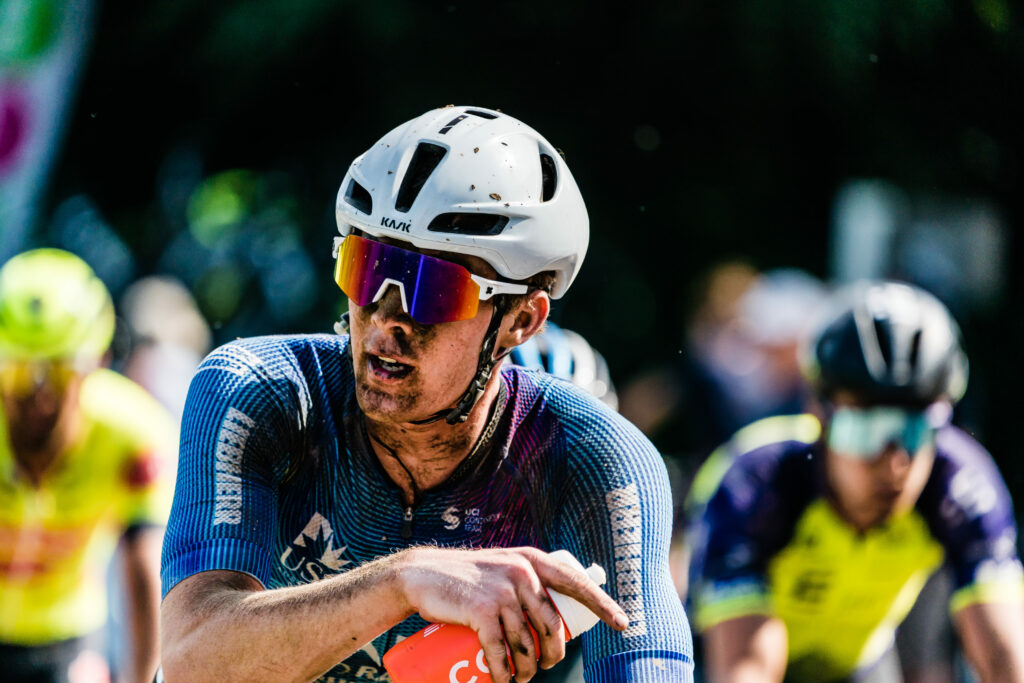
Throughout treatment, the aim of getting back to full health and back on the bike was what kept Zack going.
When I asked Zack about that first ride on the rollers in the hospital, he said that “mentally, it was a big step. It was what kept it quite normal for me. I think at a young age, I had already associated myself as a cyclist, so to be able to do it was a reason for me to fight the whole way — it was the motivation for me to keep going. Emotionally, it was a bit challenging because, obviously, I was at a high level before I got diagnosed. To see myself right back at the bottom was really hard. And to know that treatment was going to get harder from that point, that I might lose what I had already worked so hard for.”
With more time on the bike also came more chemotherapy. During treatment, Zack mentioned that “you get a lot of doubt, which started making things hard emotionally. And that caused me to push through certain areas that I guess not many people would if they didn’t have that attachment to something.”
Building a mental reserve
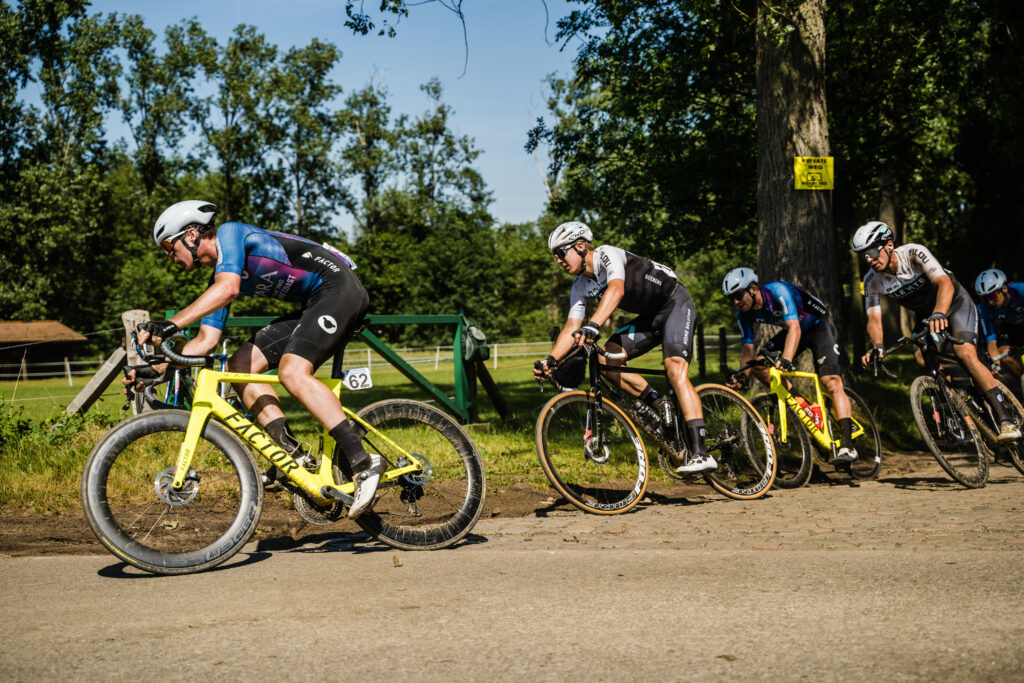
The best riders in the professional peloton know how to dig deep — it’s part and parcel of being an elite athlete.
When talking about mental toughness, Zack said, “when you’re in the crosswinds, and it’s only ten degrees and raining, you can dig in. I find myself, I’ll be in the middle of a race, and if I ever have the chance to catch my breath, which is quite rare here, I just say to myself, like, mate, you’ve been through worse than this. You can definitely try and just hang on to that wheel in front of you just a little longer, and it gets me further into the race.”
Going through something most people never will made Zack even tougher than when he was racing as a junior. And it’s something that he will always have with him — a tool in his arsenal to dig that little bit deeper than a lot of riders.
Dealing with down periods
“You might be having an off day on the bike, so you start to question things. As soon as I go through a rough patch with training, which happens, anyone that’s been an athlete or has tried to be can say, like, oh, I was just in this down period. And that’s fine as an athlete, but when you’ve also just been through cancer, it makes it ten times worse because you start to question maybe it’s coming back, or maybe something’s wrong, and I need to get it checked up.”
And while Zack doesn’t really think about check-ups anymore, previously, they were a cause for concern and delivered a lot of worries. He mentioned how he worked with excellent psychologists and other medical professionals to help deal with those doubts, worries, and other challenges he faced.
Getting back into training
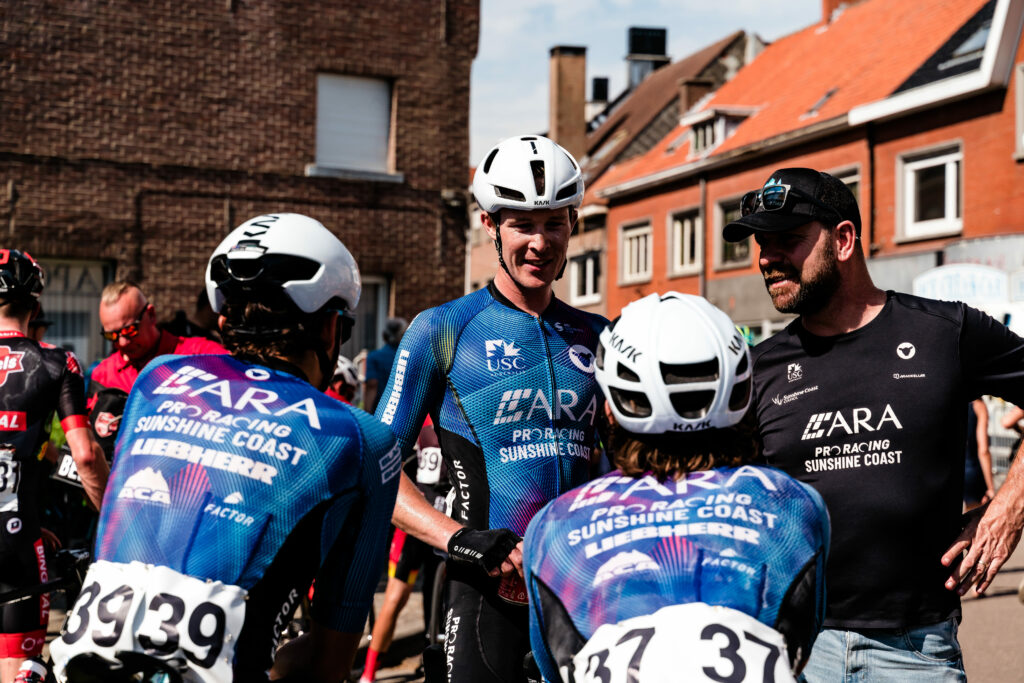
During chemotherapy treatment, Zack jumped back into training as soon as it was safe to do so. He worked his way back through the grades in the club races and back to the level he was at before.
“The first few times I think I raced, I’d be out the back of the car having to vomit, but it’s still something I’d push myself to do because I loved it so much.” Some days Zack would fly into Victoria, Australia, on a Friday for treatment, and then be out training and racing on Saturday.
And while his age group were off racing in Europe and in the Junior world championships, Zack actually gained something valuable: “his own identity as a cyclist,” as he put it.
In a way, the break from cycling and everyday life as a teenager made Zack fall in love with cycling all over again. It wasn’t just about the competition; it was a huge part of his identity.
What’s next for Zack Gilmore?
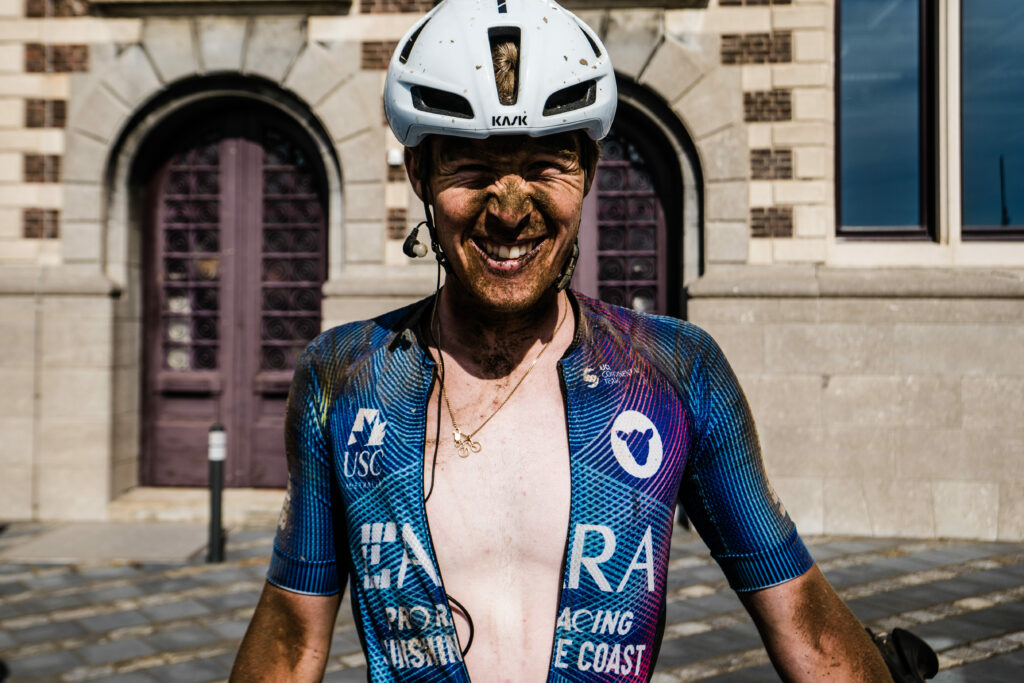
I asked Zack what his own advice would be to 16-year-old Zack, the kid who just found out he has Lymphoma. Here’s what Zack said:
“I think it’s just if you’re passionate and you believe in yourself, you can push yourself through any amount of ups and downs, and it’s going to happen in everyone’s life. The ups and downs are going to look different, but just remember what you’re doing it for, and how much you actually love doing it. When you sit back at the end of the day and just continue doing it for that reason, you’ll get through every up and down that you go through.”
So what’s Zack up to now? Zack manages the coaching support at the RCA and has just celebrated 5 years of cancer remission. He’d just signed with the AT85 Pro Cycling team in the UK, but as you may have heard, the team collapsed at the last minute.
And while this may be more adversity for Zack, it’s something he’s used to. He’s fighting his way back on the iconic cobbled streets of Belgium and is celebrating cancer remission. He continues to channel that mental strength and toughness he found while battling cancer, and no doubt will land on his own two cleats with a pro team soon.

